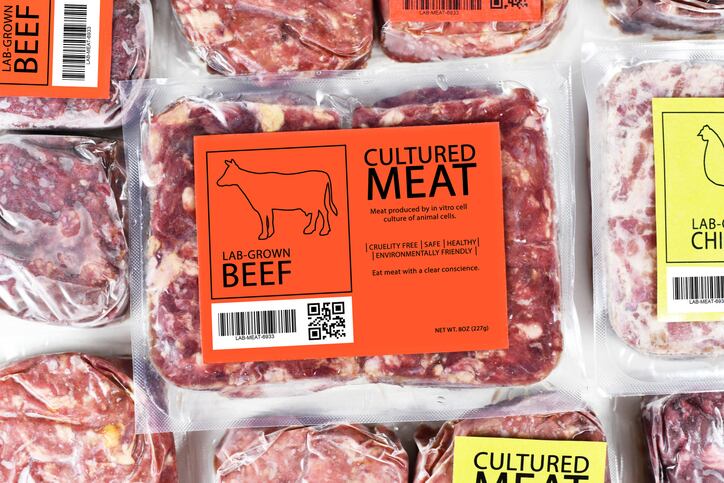Researchers from France found that while the novelty factor may prompt a first try, it would be much harder to covert this into sustained consumption.
As most surveys on consumer acceptance of cell-based meats are conducted in the US and Europe, where typically more than half of respondents are willing to try cell-based meats, researchers wanted to investigate consumers’ willingness, attitude, and acceptance of cell-based meats in China.
Questionnaire design
An online survey titled “Survey on novel food—Artificial Meat” was conducted in China between June to August 2020.
The survey included an introduction to cell-based meats to avoid confusion with other meat substitutes such as plant-based meats. It is described as a novel food produced in laboratories using animal muscle stem cells, but does not come directly from a living animal and which proliferate in culture.
The survey was divided into sections collecting sociodemographic data, their criteria for food purchase, and information about respondents’ attitudes faced by conventional meat and cell-based meat industries (ethical issues, environmental issues, rural life issues).
They were also asked on their willingness to try cell-based meats, how much they would be willing to pay and under which context they would be willing to eat or not cell-based meat regularly.
A total of 4,666 survey responses were analysed in this study.
Willing to try, but not regularly
The survey results showed that 19.9% and 29.8% of respondents were definitely and probably willing to try cell-based meats respectively. The other half were unsure and not willing to try.
Of the total respondents, 47.2% do not want to eat cell-based meat regularly.
According to the survey, food crisis, avoiding zoonosis, and curiosity were the three important reasons associated with willingness to try.
Concerns regarding safety and unnaturalness were the main reasons for Chinese people’s willingness to engage in cell-based meats.
In the survey, respondents indicated that safety, taste and price were the top three food purchase criteria.
About 46% of respondents were willing to pay for cell-based meat at a much cheaper price than conventional meat, 40% were willing to pay at a lower price than conventional meat, and 10% were willing to pay at the same price as conventional meat. Only 3% of respondents are willing to pay more.
Reasons like ethical and environmental issues while more common in Western countries, were not as crucial among Chinese consumers.
Although around half of the respondents thought that cell-based meat is more ethical and eco-friendly than conventional meat, more than 50% of the respondents feared that cell-based meat would have negative impacts on the traditional meat industry, territories, and rural life.
More attractive to elderly and men
Researchers observed that older participants, men and those in the meat sector or scientists were more willing to try cell-based meat.
They explained that the middle-aged and elderly people were more curious and open-minded to accept novel things, to compensate for the lack of impulse purchases in their youth due to a low economic activity in China several decades ago.
“By contrast, Chinese young people, who are more beginners in being economically independent, being still students, with economic and parental pressure, may tend to be more conservative face to new things, especially if the price of the new product is too high.”
It was also found that cell-based meat acceptance was significantly higher amongst agricultural and meat workers, indicating that those who were closest to existing meat production methods were most likely to prefer alternatives. However, it did not mean they would be willing to eat regularly or to pay at an expensive price.
Despite the consideration that cell-based meat can be regarded as a vegetarian product, which could be attractive to some vegetarians and vegans, naturally, those who never ate meat have the lowest willingness to try.
Safety, taste and nutrition first
Based on these survey findings, it cannot be interpreted that Chinese consumers are eager for cell-based meats, according to the researchers.
For Chinese consumers, this novel food is expected to be safe, tasty, and nutritious hence research and development should focus on these.
Unlike in Western countries, ethics and environmental issues are not the main drivers of acceptance of cell-based meat for Chinese consumers at this stage.
Last December, Singapore was the first country in the world to approve the sales of cell-based meat, specifically chicken.
Source: Foods
https://doi.org/10.3390/foods10020353
“Chinese Consumers’ Attitudes and Potential Acceptance toward Artificial Meat”
Authors: Jingjing Liu, et al.




